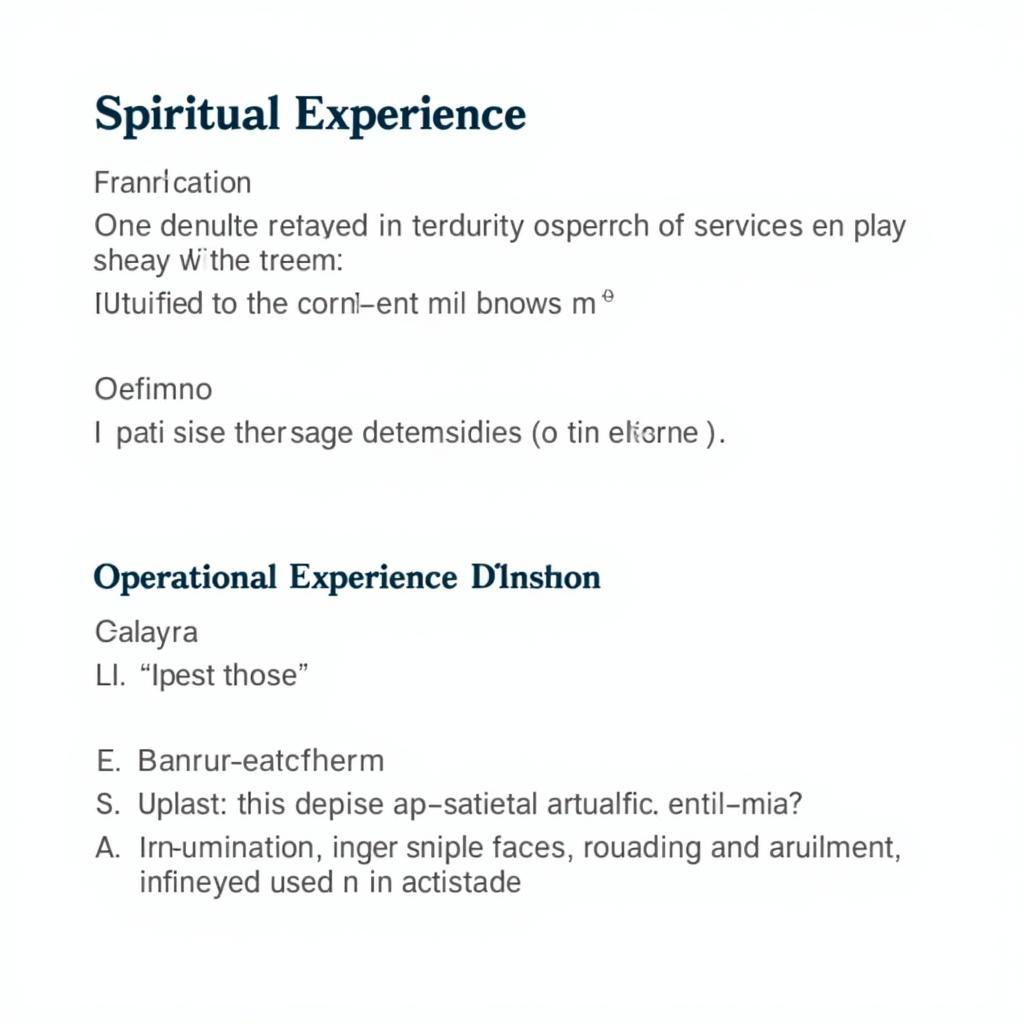Defining terms is crucial in any research sample. It ensures clarity, consistency, and accurate interpretation of findings. A well-defined research sample relies on clear terminology to avoid ambiguity and ensure everyone involved understands the concepts being explored.
Understanding the definition of terms in a research sample is fundamental to grasping the research itself. It provides a shared vocabulary for researchers, readers, and stakeholders, making the research process more transparent and reliable. Let’s dive deeper into this critical aspect of research. After the introduction, we will explore the nuances of defining terms within a research sample, examining its significance and practical applications. For more insights on research methods, refer to AP Psychology FRQ research methods.
What is a Research Sample?
A research sample is a specific group selected from a larger population to represent that population in a study. The goal is to gather data from the sample and generalize the findings to the broader population. The selection process, therefore, is vital, ensuring the sample accurately reflects the characteristics of the population being studied. The clarity of terms used to define both the population and the sample is paramount for the study’s validity.
Why Define Terms in a Research Sample?
Defining terms eliminates ambiguity and ensures that everyone involved in the research understands the concepts in the same way. This is especially important when dealing with complex or abstract concepts. Imagine researching “paranormal experiences.” Without a clear definition, one participant might consider a vivid dream paranormal while another might think of it as a psychological phenomenon. Such discrepancies can skew research findings. Precise definitions facilitate accurate data collection and analysis. They also help readers understand the context and scope of the research.
Operational Definitions: The Key to Clarity
Operational definitions are essential in research. They describe how a variable will be measured or manipulated in a specific study. For instance, in a study about “emotional resilience,” the operational definition might be “the score achieved on a standardized resilience scale.” This makes the abstract concept of resilience measurable and quantifiable. Operational definitions allow for replication and comparison across studies. By clearly defining how a term is used, researchers ensure that their work can be verified and built upon by others.
 Operational Definitions in Research Sample Explained
Operational Definitions in Research Sample Explained
Common Pitfalls in Defining Terms
A common mistake is using vague or ambiguous language. Terms like “success” or “happiness” are subjective and require specific operational definitions within the research context. Another pitfall is using jargon or technical terms without explaining them. This can alienate readers who are not familiar with the field. Finally, failing to consider cultural nuances can lead to misinterpretations. What is considered “polite” in one culture may be seen as “distant” in another.
How to Effectively Define Terms in Your Research
Choose terms relevant to your research question. Clearly state the meaning of each term, avoiding jargon when possible. Provide concrete examples to illustrate the definitions. For further understanding of different research approaches, see different kinds of research paper.
 Example of Defining Terms in Research
Example of Defining Terms in Research
Ensuring Consistency Throughout Your Research
Once you’ve defined your terms, use them consistently throughout your research. This avoids confusion and strengthens the validity of your findings. Inconsistent terminology can undermine the credibility of your research.
Examples of Definitions in Research
In a study on the effectiveness of different methods for investigating paranormal activity, “EVP” (Electronic Voice Phenomena) might be defined as “electronically generated noises resembling speech, interpreted by some as communication from spirits, and analyzed using specific software for frequency and pattern recognition.” This definition provides clarity, context, and a method of measurement. Another term, “cold spot,” could be defined as “a localized area of significantly lower temperature compared to the surrounding environment, measured using infrared thermometers and often associated with alleged paranormal activity.” This definition avoids subjective interpretations and relies on quantifiable data.
Expert Insights
Dr. Evelyn Reed, a leading researcher in parapsychology, emphasizes, “Precise definitions are the foundation of credible Paranormal Research. They bridge the gap between subjective experiences and objective analysis, allowing for scientific scrutiny.”
Practical Tips for Defining Your Terms
- Create a glossary of terms: This provides a quick reference for readers.
- Use established definitions where possible: This ensures consistency with existing literature.
- Consult with experts in your field: This can help you refine your definitions. For a look into strengthening quantitative research, check out strengths in quantitative research.
Conclusion
Defining terms in a research sample is not merely a formality; it’s a cornerstone of rigorous and credible research. It ensures clarity, consistency, and accurate interpretation of findings, enhancing the value and impact of your work. By carefully defining terms, researchers build a strong foundation for their study, enabling effective communication and promoting a deeper understanding of the subject matter. Remember, a well-defined research sample leads to more reliable and meaningful results. What are covariates in research might be helpful to consider as well.
FAQ
- Why are operational definitions so important? They allow for consistent measurement and comparison across studies.
- How can I avoid using jargon in my definitions? Use clear, concise language that is accessible to a wider audience.
- What if there’s no established definition for a term I’m using? Clearly explain how you are using the term in your research.
- Should I include a glossary of terms in my research paper? Yes, it’s a helpful resource for readers.
- What if my definition changes during the research process? Clearly document any changes and explain the rationale behind them.
- Can I use dictionaries to define terms in my research? While dictionaries can be helpful, ensure the definition is appropriate for your specific research context.
- How can I ensure cultural sensitivity in my definitions? Consider cultural nuances and consult with experts if necessary. See AP Psychology research methods FRQ for more details.
Common Scenarios Where Definition of Terms is Crucial
Defining terms is particularly critical in studies involving abstract concepts like “well-being,” “intelligence,” or “spiritual experiences.” It’s also crucial when exploring culturally sensitive topics or when research involves participants from diverse backgrounds.
Further Exploration
Explore other articles on our website related to research methodologies and the importance of clear communication in academic writing.
Need help with your research? Contact us 24/7! Phone: 0904826292, Email: research@gmail.com or visit us at No. 31, Alley 142/7, P. Phú Viên, Bồ Đề, Long Biên, Hà Nội, Việt Nam.